We’re delighted to offer a selection of latest releases from our core subjects of Anthropology, Peace & Conflict Studies, History, Media Studies, Medical Anthropology, Refugee and Migration Studies, Sociology, and Urban Studies, along with our New in Paperback titles.
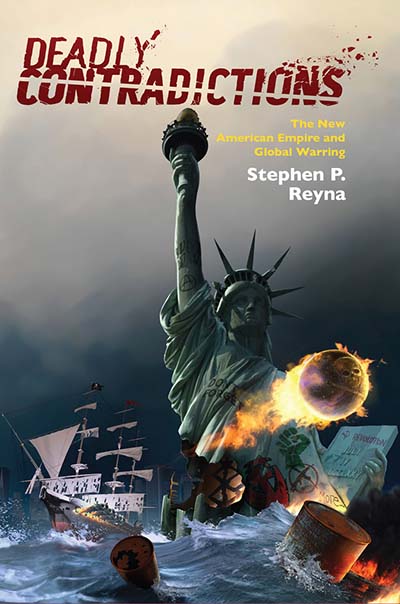 DEADLY CONTRADICTIONS
DEADLY CONTRADICTIONS
The New American Empire and Global Warring
Stephen P. Reyna
“This is an amazing book, a page-turner, a true game-changer, one of those grand oeuvres that an academic discipline produces once a decade at best.” · Patrick Neveling, Cultural Anthropology, Utrecht University
As US imperialism continues to dictate foreign policy, Deadly Contradictions is a compelling account of the American empire. Stephen P. Reyna argues that contemporary forms of violence exercised by American elites in the colonies, client state, and regions of interest have deferred imperial problems, but not without raising their own set of deadly contradictions. This book can be read many ways: as a polemic against geopolitics, as a classic social anthropological text, or as a seminal analysis of twenty-four US global wars during the Cold War and post-Cold War eras.
Read Introduction
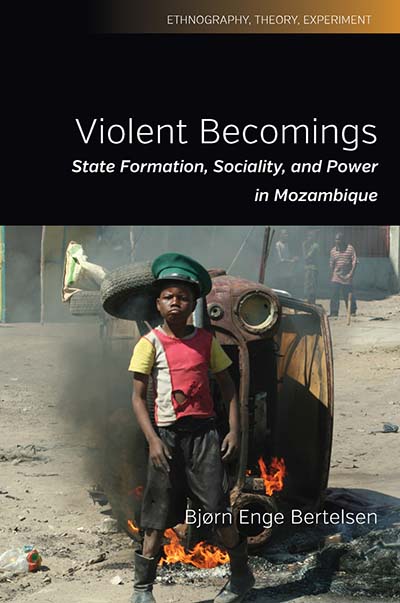 Paperback Original
Paperback Original
VIOLENT BECOMINGS
State Formation, Sociality, and Power in Mozambique
Bjørn Enge Bertelsen
Volume 4, Ethnography, Theory, Experiment
Violent Becomings conceptualizes the Mozambican state not as the bureaucratically ordered polity of the nation-state, but as a continuously emergent and violently challenged mode of ordering. In doing so, this book addresses the question of why colonial and postcolonial state formation has involved violent articulations with so-called ‘traditional’ forms of sociality. The scope and dynamic nature of such violent becomings is explored through an array of contexts that include colonial regimes of forced labor and pacification, liberation war struggles and civil war, the social engineering of the post-independence state, and the popular appropriation of sovereign violence in riots and lynchings.
Read Introduction
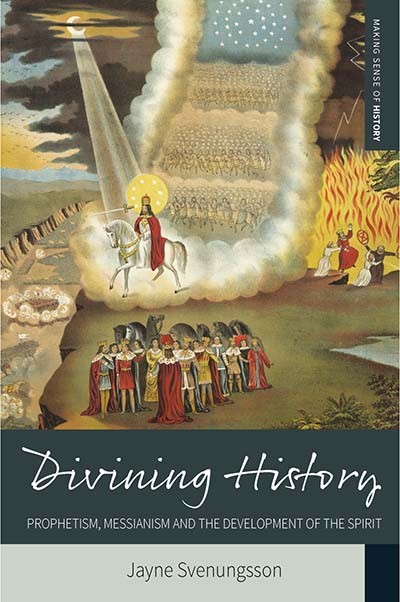 WINNER OF THE 2015 KARIN GIEROW PRIZE
WINNER OF THE 2015 KARIN GIEROW PRIZE
DIVINING HISTORY
Prophetism, Messianism and the Development of the Spirit
Jayne Svenungsson
Translated by Stephen Donovan
Volume 26, Making Sense of History
“The evolution of the concept of history and its apocalyptic elements are lucidly brought forth in a fascinating new book by the Swedish theologian and historian Jayne Svenungsson, exploring uses of history from the Old Testament prophets to today’s Paul-inspired philosophers.” · Politiken
For millennia, messianic visions of redemption have inspired men and women to turn against unjust and oppressive orders. Yet these very same traditions are regularly decried as antecedents to the violent and authoritarian ideologies of modernity. Informed in equal parts by theology and historical theory, this book offers a provocative exploration of this double-edged legacy. Author Jayne Svenungsson rigorously pursues a middle path between utopian arrogance and an enervated postmodernism, assessing the impact of Jewish and Christian theologies of history on subsequent thinkers, and in the process identifying a web of spiritual and intellectual motifs extending from ancient Jewish prophets to contemporary radicals such as Giorgio Agamben and Slavoj Zizek.
Read Preface and Acknowledgements
 THE DEVIL’S WHEELS
THE DEVIL’S WHEELS
Men and Motorcycling in the Weimar Republic
Sasha Disko
Volume 2, Explorations in Mobility
During the high days of modernization fever, among the many disorienting changes Germans experienced in the Weimar Republic was an unprecedented mingling of consumption and identity: increasingly, what one bought signaled who one was. Exemplary of this volatile dynamic was the era’s burgeoning motorcycle culture. With automobiles largely a luxury of the upper classes, motorcycles complexly symbolized masculinity and freedom, embodying a widespread desire to embrace progress as well as profound anxieties over the course of social transformation. Through its richly textured account of the motorcycle as both icon and commodity, The Devil’s Wheels teases out the intricacies of gender and class in the Weimar years.
Read Introduction: Does the man make the motorcycle or the motorcycle the man?
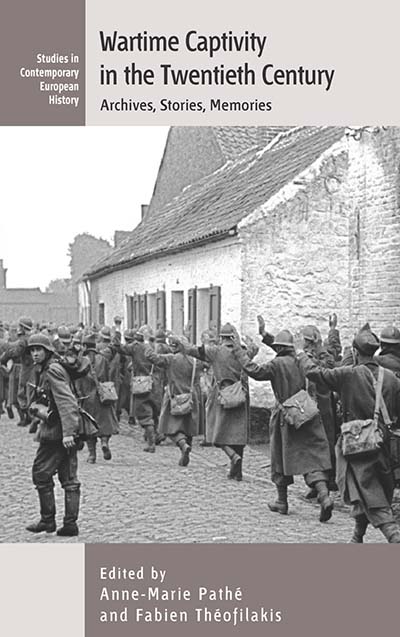 WARTIME CAPTIVITY IN THE 20TH CENTURY
WARTIME CAPTIVITY IN THE 20TH CENTURY
Archives, Stories, Memories
Edited by Anne-Marie Pathé and Fabien Théofilakis
Translated by Helen McPhail
Volume 19, Contemporary European History
“This is … a very important book, because it presents a very specific review of current research, because it opens up lines of inquiry, and also because it brings together sources and other disciplines so as to enrich the study of this particular category of soldiers.” · La Cliothèque
Long a topic of historical interest, wartime captivity has over the past decade taken on new urgency as an object of study. Transnational by its very nature, captivity’s historical significance extends far beyond the front lines, ultimately inextricable from the histories of mobilization, nationalism, colonialism, law, and a host of other related subjects. This wide-ranging volume brings together an international selection of scholars to trace the contours of this evolving research agenda, offering fascinating new perspectives on historical moments that range from the early days of the Great War to the arrival of prisoners at Guantanamo Bay.
Read Editors’ Introduction: Prisoners of War in the Twentieth Century: A Problematic at the Crossroads of Histories and Disciplines
Introduction: War Imprisonment in the Twentieth Century
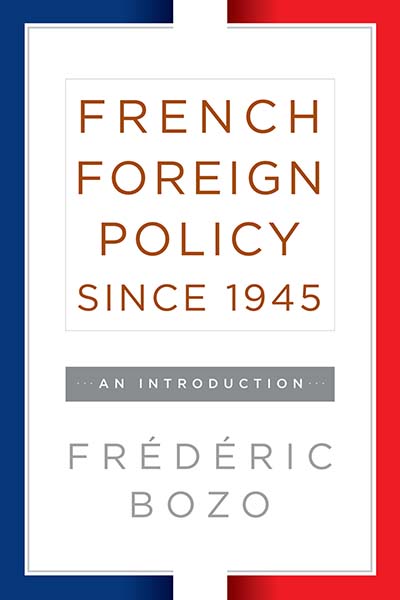 Paperback Original
Paperback Original
FRENCH FOREIGN POLICY SINCE 1945
An Introduction
Frédéric Bozo
“This is a rational, objective and well-documented book. It is essential for understanding the conduct of one of the few countries in the world that do have a distinctive foreign policy, and indispensable for France’s allies and partners alike.” · Hubert Védrine, former French Minister of Foreign Affairs
When Charles de Gaulle declared that “it is because we are no longer a great power that we need a grand policy,” he neatly summarized France’s predicament on the world scene. In this compact and engaging history, author Frédéric Bozo deftly recounts France’s efforts to reconcile its proud history and global ambitions with a realistic appraisal of its capabilities, from the aftermath of World War II to the present. He provides insightful analysis of the nation’s triumphs and setbacks through the years of decolonization, Cold War maneuvering, and European unification, as well as the more contemporary challenges posed by an increasingly multipolar and interconnected world.
Read Introduction
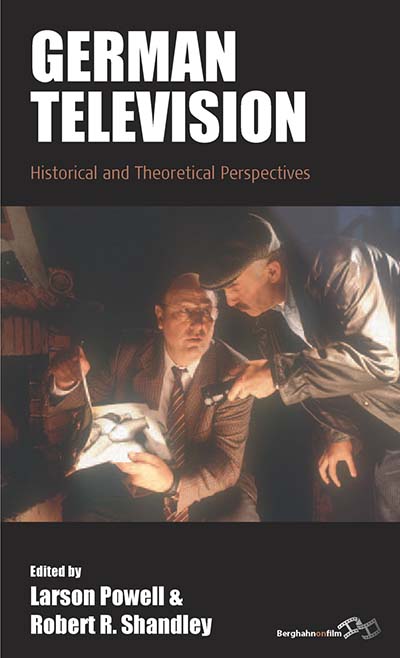 GERMAN TELEVISION
GERMAN TELEVISION
Historical and Theoretical Perspectives
Edited by Larson Powell and Robert R. Shandley
Volume 19, Film Europa
Long overlooked by scholars and critics, the history and aesthetics of German television have only recently begun to attract serious, sustained attention, and then largely within Germany. This ambitious volume, the first in English on the subject, provides a much-needed corrective in the form of penetrating essays on the distinctive theories, practices, and social-historical contexts that have defined television in Germany. Encompassing developments from the dawn of the medium through the Cold War and post-reunification, this is an essential introduction to a rich and varied media tradition.
Read Introduction
 CONCEPTIONS
CONCEPTIONS
Infertility and Procreative Technologies in India
Aditya Bharadwaj
Volume 34, Fertility, Reproduction and Sexuality
“Surely, the book will become a ‘must’ for research on any related field, in university classes at every level of study, as well as a delightful reading for anyone interested in India, childbirth and infertility or the politics of healthcare, to mention but few.” · Daphna Birenbaum-Carmeli, University of Haifa
Infertility and assisted reproductive technologies in India lie at the confluence of multiple cultural conceptions. These ‘conceptions’ are key to understanding the burgeoning spread of assisted reproductive technologies and the social implications of infertility and childlessness in India. This longitudinal study is situated in a number of diverse locales which, when taken together, unravel the complex nature of infertility and assisted conception in contemporary India.
Read Introduction: Conceptualising Conceptions: An Introduction
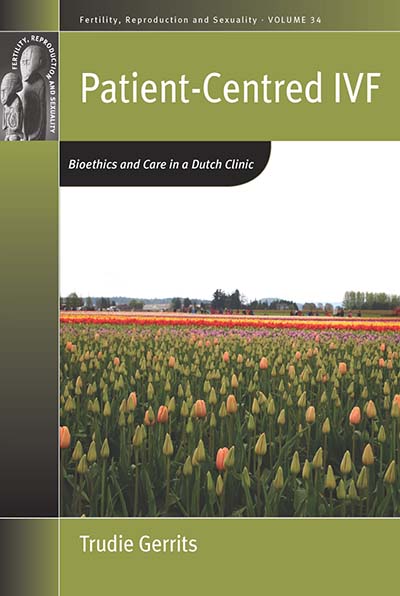 PATIENT-CENTRED IVF
PATIENT-CENTRED IVF
Bioethics and Care in a Dutch Clinic
Trudie Gerrits
Volume 33, Fertility, Reproduction and Sexuality
Contemporary Dutch policy and legislation facilitate the use of high quality, accessible and affordable assisted reproductive technologies (ARTs) to all citizens in need of them, while at the same time setting some strict boundaries on their use in daily clinical practices. Through the ethnographic study of a single clinic in this national context, Patient-Centred IVF examines how this particular form of medicine, aiming to empower its patients, co-shapes the experiences, views and decisions of those using these technologies. Gerrits contends that to understand the use of reproductive technologies in practice and the complexity of processes of medicalization, we need to go beyond ‘easy assumptions’ about the hegemony of biomedicine and the expected impact of patient-centredness.
Read Introduction
 STAYING AT HOME
STAYING AT HOME
Identities, Memories and Social Networks of Kazakhstani Germans
Rita Sanders
Volume 13, Integration and Conflict Studies
Despite economic growth in Kazakhstan, more than 80 per cent of Kazakhstan’s ethnic Germans have emigrated to Germany to date. Disappointing experiences of the migrants, along with other aspects of life in Germany, have been transmitted through transnational networks to ethnic Germans still living in Kazakhstan. Consequently, Germans in Kazakhstan today feel more alienated than ever from their ‘historic homeland’. This book explores the interplay of those memories, social networks and state policies, which play a role in the ‘construction’ of a Kazakhstani German identity.
![]() NEW & REVISED SECOND EDITION
NEW & REVISED SECOND EDITION
CONSTITUTIONAL COURTS IN COMPARISON
The US Supreme Court and the German Federal Constitutional Court
Edited by Ralf Rogowski and Thomas Gawron
Praise for the first edition:
“…reveals numerous and fruitful points of contact between American and German constitutional law on the one hand, and the emerging case-law under the HRA on the other… provides vital background information concerning the underlying structures and institutions of both systems.” · European Public Law
Constitutional litigation in general attracts two distinct types of conflict: disputes of a highly politicized or culturally controversial nature and requests from citizens claiming a violation of a fundamental constitutional right. The side-by-side comparison between the U.S. Supreme Court and the German Federal Constitutional Court provides a novel socio-legal approach in studying constitutional litigation, focusing on conditions of mobilisation, decision-making and implementation.
This updated and revised second edition includes a number of new contributions on the political status of the courts in their democratic political cultures.
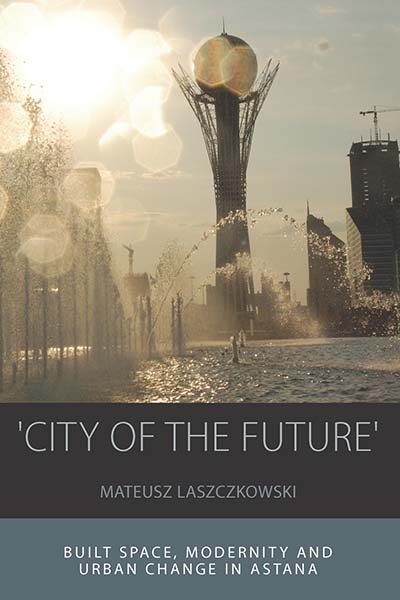 ‘CITY OF THE FUTURE’
‘CITY OF THE FUTURE’
Built Space, Modernity and Urban Change in Astana
Mateusz Laszczkowski
Volume 14, Integration and Conflict Studies
“‘City of the Future’ is the first of its kind. As a long-awaited comprehensive account of the rise of Astana… it is a remarkably thoughtful and thought-provoking book. Laszczkowski is a skilled ethnographer and he recounts his rich and insightful research in a style that captivates and challenges readers to think outside the box.” · Natalie Koch, University of Syracuse
Astana, the capital city of the post-Soviet Kazakhstan, has often been admired for the design and planning of its futuristic cityscape. This anthropological study of the development of the city focuses on every-day practices, official ideologies and representations alongside the memories and dreams of the city’s longstanding residents and recent migrants. Critically examining a range of approaches to place and space in anthropology, geography and other disciplines, the book argues for an understanding of space as inextricably material-and-imaginary, and unceasingly dynamic – allowing for a plurality of incompatible pasts and futures materialized in spatial form.
Read Introduction: Pathways into the ‘City of the Future’
New in Paperback
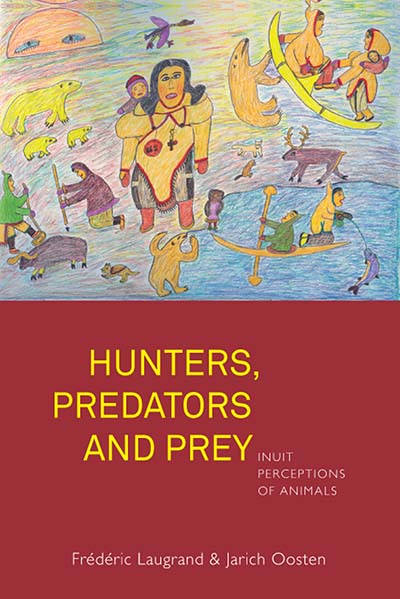 HUNTERS, PREDATORS AND PREY
HUNTERS, PREDATORS AND PREY
Inuit Perceptions of Animals
Frédéric Laugrand and Jarich Oosten†
“This is a beautiful and deeply humbling book whose detailed accounts show the depth, power, and wisdom of a worldview too often dismissed or forgotten. For all scholars of the Arctic and indigenous peoples and of major interest to thoughtful philosophers. Essential.” · Choice
Inuit hunting traditions are rich in perceptions, practices and stories relating to animals and human beings. The authors examine key figures such as the raven, an animal that has a central place in Inuit culture as a creator and a trickster, and qupirruit, a category consisting of insects and other small life forms. After these non-social and inedible animals, they discuss the dog, the companion of the hunter, and the fellow hunter, the bear, considered to resemble a human being. A discussion of the renewal of whale hunting accompanies the chapters about animals considered ‘prey par excellence’: the caribou, the seals and the whale, symbol of the whole. By giving precedence to Inuit categories such as ‘inua’ (owner) and ‘tarniq’ (shade) over European concepts such as ‘spirit ‘and ‘soul’, the book compares and contrasts human beings and animals to provide a better understanding of human-animal relationships in a hunting society.
Read Chapter 2. The Animals and Their Environment
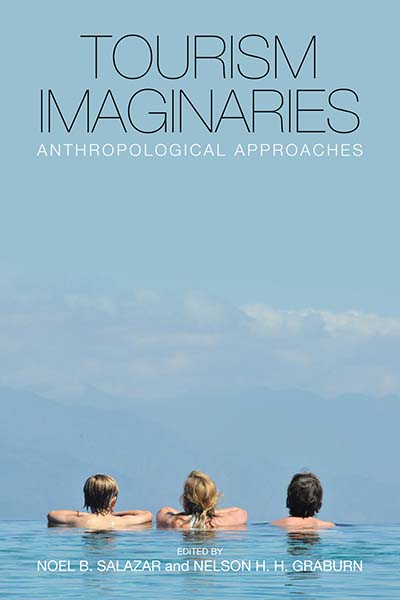 TOURISM IMAGINARIES
TOURISM IMAGINARIES
Anthropological Approaches
Edited by Noel B. Salazar and Nelson H. H. Graburn
Afterword by Naomi Leite
“This book establishes ‘imaginaries’ as part of the conceptual apparatus of the anthropology of tourism [and] contributes to social anthropology more generally by exploring how tourism imaginaries intersect with broader cultural and ideological structures… The wealth of its ethnography, combined with its innovative conceptual approaches, exemplifies the strengths anthropology is bringing to interdisciplinary tourism studies.” · Journal of the Royal Anthropological Institute
It is hard to imagine tourism without the creative use of seductive, as well as restrictive, imaginaries about peoples and places. These socially shared assemblages are collaboratively produced and consumed by a diverse range of actors around the globe. As a nexus of social practices through which individuals and groups establish places and peoples as credible objects of tourism, “tourism imaginaries” have yet to be fully explored. Presenting innovative conceptual approaches, this volume advances ethnographic research methods and critical scholarship regarding tourism and the imaginaries that drive it. The various authors contribute methodologically as well as conceptually to anthropology’s grasp of the images, forces, and encounters of the contemporary world.
Read Introduction: Toward an Anthropology of Tourism Imaginaries
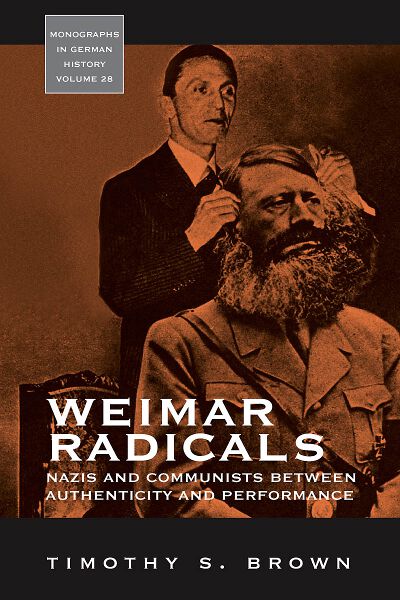 WEIMAR RADICALS
WEIMAR RADICALS
Nazis and Communists between Authenticity and Performance
Timothy S. Brown
Volume 28, Monographs in German History
“Brown’s [innovative study] makes a vital contribution to an understanding of the Weimar Republic as a set of competing political stages, where radicalism was not the direct result of social or economic circumstances, but part and parcel of a deliberate dramatization of political speech.” · German History
Exploring the gray zone of infiltration and subversion in which the Nazi and Communist parties sought to influence and undermine each other, this book offers a fresh perspective on the relationship between two defining ideologies of the twentieth century. The struggle between Fascism and Communism is situated within a broader conversation among right- and left-wing publicists, across the Youth Movement and in the “National Bolshevik” scene, thus revealing the existence of a discourse on revolutionary legitimacy fought according to a set of common assumptions about the qualities of the ideal revolutionary. Highlighting the importance of a masculine-militarist politics of youth revolt operative in both Marxist and anti-Marxist guises, Weimar Radicals forces us to re-think the fateful relationship between the two great ideological competitors of the Weimar Republic, while offering a challenging new interpretation of the distinctive radicalism of the interwar era.
Read Chapter 1. The revolt of the masses: Populist radicalism and the discontents of modernity
